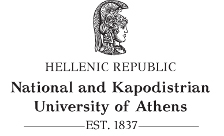Course: Socio-Economic Investment Appraisal-ECO492
Course Type: Thematic Group: Development and International Economics
Teaching Semester: Spring (B)
Semester: 8th
Prerequisite Course:Investment Appraisal (ECO426)
Instructor: Paraskevi Boufounou
Aims and Objectives:
The course aims to present and familiarize students with the method of Cost Benefit Analysis, to assess the (positive and negative) impacts of development projects and policy measures into social welfare.
The course is structured in 3 sections that be implemented in 13-week lectures.
- In the first section, the criteria of investment decisions are presented together with the development project cycle and the interconnection of development projects to public investment and development policy. In particular, the following is introduced:
- the basic concepts of investment appraisal from a private economic point of view, ie the concepts of investment, payoff, Present Net Value, investment criteria and financial analysis of an investment, and
- the concepts of the project, the policy measure and the regulatory intervention of the state. Also the framework of the economic evaluation of a state intervention is presented.
- In the second section, the theoretical foundation of the method is presented by extending microeconomic theory to prosperity economics, externalities and public goods with an emphasis on contemporary public policy issues such as the choice between efficiency and social justice and the economic evaluation of the regulatory policy.
- In the third section the application of the method in assessing the feasibility of the project in terms of national prosperity is presented. Particular emphasis is placed on shadow prices’ estimation, on the concept of social discount rate, on risk analysis and uncertainty and on impact assessment on income distribution and on the environment. Also, the concept of project feasibility in terms of national prosperity is distinguished from the concept of project viability in market conditions, and the role of the private sector in the financing of development projects is examined.
- At the same time, case-studies will be presented in various fields such as energy, transport, water resources, etc.
E-class is used.
A mixed evaluation system is applied, comprising of a project/essay assignment accompanied by classroom presentation
Content:
1. Socio-Economic and Financial Investment Appraisal
2. Public Interventions, Investments, Projects, Policy Measures
3. Investment Criteria
4. Evaluation of Public Policy Measures - Effectiveness & Prosperity
5. Consumer Surplus
6. The Market Limits and the State Interventions
7. Financial Evaluation of the Project - Financial Expediency
8. Risk and Uncertainty
9. Social Interest Rate
10. Valuation of Non-Traded Goods
11. Social Policy Measures Evaluation
12. Project Sustainability - Private Provision - Cost Recovery
13. Special Issues of Socio-Economic Investment Appraisal – Case Studies
Bibliography
- Mergos G. (2009) Social-economic Evaluation of Investments and Policies, Benou Publications, Athens 2009 Volume A 'Theory and Volume B Applications and Exercises– (Distributed by EUDOXOS)
Supporting Bibliography:
- Boardman A., Greenberg D., Vining A., Weimer D. (2008), Cost–Benefit Analysis Concepts and Practice, Pearson International Edition
- Florio M. (2014), Applied Welfare Economics: Cost-Benefit Analysis of Projects and Policies, Rutledge Advanced Texts in Economics and Finance, NY
- European Commission, DG Region (2008) Guide to Cost Benefit Analysis of Investment Projects. Structural Funds, Cohesion Fund and Instrument for Pre-Accession, Brussels
